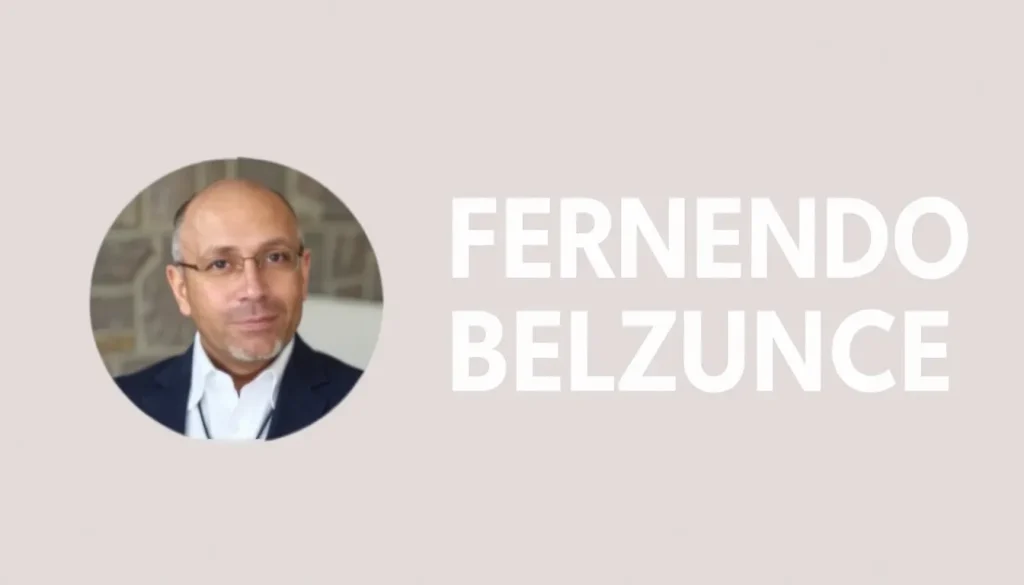Interview with Fernando Belzunce, Vocento Editorial Director

In a compelling interview, Fernando Belzunce, the editorial director of Vocento, discusses his recently published book titled “Journalists in Times of Darkness: The Unbreakable Commitment to Truth in the Era of Disinformation” (Editorial Ariel). This collective work reflects on a profession in crisis and the mounting attacks on press freedom. Our conversation delves into the challenges posed by social media and the evolving landscape of journalism.
- The Evolution of Journalism in the Digital Age
- Challenges Faced by Today's Journalists
- The Vulnerability of Journalists in the Current Climate
- Public Awareness of Press Conditions
- Assessing Press Freedom in the Western World
- Combating Fake News and Disinformation
- The Role of Media in Upholding Truth
- Empowering Citizens Through Accessible Information
- Personal Social Media Engagement
The Evolution of Journalism in the Digital Age
Fernando emphasizes the seismic shift that the internet and social media have brought to journalism. This transformation transcends mere technical changes; it has reshaped the very essence of how news is produced and consumed.
One of the most significant changes is the instantaneous nature of news dissemination. Today, events are reported in real-time, which alters the traditional timeline of news reporting. In addition, the blending of formats—such as video, audio, text, and graphics—has enriched storytelling but also complicated it.
- Instantaneous publishing and real-time updates.
- Integration of multimedia formats into storytelling.
- Direct audience engagement and feedback.
- Constant access to information via mobile devices.
- Impact on traditional business models and revenue generation.
However, these advancements come with their own set of challenges. The overwhelming amount of information and noise on social media can hinder the audience's ability to discern credible news from misinformation. According to Fernando, this presents a paradox where social platforms, despite being vital for engagement, can dilute the quality of journalism.
Challenges Faced by Today's Journalists
In the rapidly changing digital landscape, Fernando identifies quality and credibility as the primary challenges journalists must navigate. This not only pertains to the accuracy of their work but also to their adaptability in an environment that evolves at breakneck speed.
The emergence of social media has also introduced new dynamics that complicate traditional journalistic practices. Journalists today must be adept in various digital skills while maintaining the standards of quality that the public expects.
The Vulnerability of Journalists in the Current Climate
Fernando’s book highlights the concept of “vulnerability” for journalists, addressing the alarming trends of harassment and attacks they face, particularly on social media platforms. He cites the case of María Ressa, who endured over 500,000 attacks online due to her investigative reporting on police abuses in the Philippines.
These assaults are often strategic attempts to undermine journalists and silence dissenting voices, contributing to a culture of disinformation fueled by hidden agendas.
Public Awareness of Press Conditions
When asked about public awareness regarding the plight of journalists, Fernando suggests that there is a significant gap in understanding. Journalists often report on the struggles of others while neglecting to share their own experiences. This lack of transparency can obscure the critical issues facing the profession from the public eye.
It’s essential for society to grasp the challenges journalists encounter, as this awareness can influence public support for press freedom and accountability.
Assessing Press Freedom in the Western World
Fernando asserts the existence of press freedom in Western democracies, including Spain. However, he stresses that there is a troubling lack of respect for journalists from politicians across the spectrum. Elected officials should uphold democratic values and engage with the media constructively, even when faced with critical coverage.
Combating Fake News and Disinformation
The challenge of disinformation is pervasive and is expected to escalate, particularly with advancements in artificial intelligence. Fernando emphasizes that while the issue may not be entirely solvable, steps can be taken to mitigate its effects. Experts focus on:
- Identifying the sources and motives behind disinformation.
- Educating audiences on recognizing false information.
- Developing critical thinking skills among consumers of news.
Addressing the psychological aspects involved in belief formation is also crucial in developing effective responses to disinformation.
The Role of Media in Upholding Truth
For credible media organizations, the presence of disinformation presents an opportunity to reaffirm their commitment to quality journalism. Fernando argues that reputable outlets should actively work to establish trust with their audiences, despite the challenges posed by false information circulating in unregulated environments.
While serious media may occasionally publish errors, the overall reliability of their reporting is significantly higher compared to unverified sources found on social media.
Empowering Citizens Through Accessible Information
Fernando believes that citizens have unprecedented access to high-quality information today. The challenge lies in enhancing media literacy so that the public recognizes and values credible journalism. He advocates for:
- Improving education regarding media and information sources.
- Highlighting the attributes of quality journalism.
- Encouraging critical engagement with news content.
Lastly, when discussing his own social media presence, Fernando mentions that he is active on platforms like Twitter, Instagram, TikTok, and LinkedIn, though he has distanced himself from Facebook due to its emotional impact on interpersonal relationships. His preference leans towards LinkedIn, which he finds to be a more professional and less chaotic environment.
Despite his reservations about social media's tendency to foster negativity, he acknowledges their utility for networking and discovering innovative narratives.
*Photograph by Oscar Chamorro, provided by Fernando Belzunce




Leave a Reply